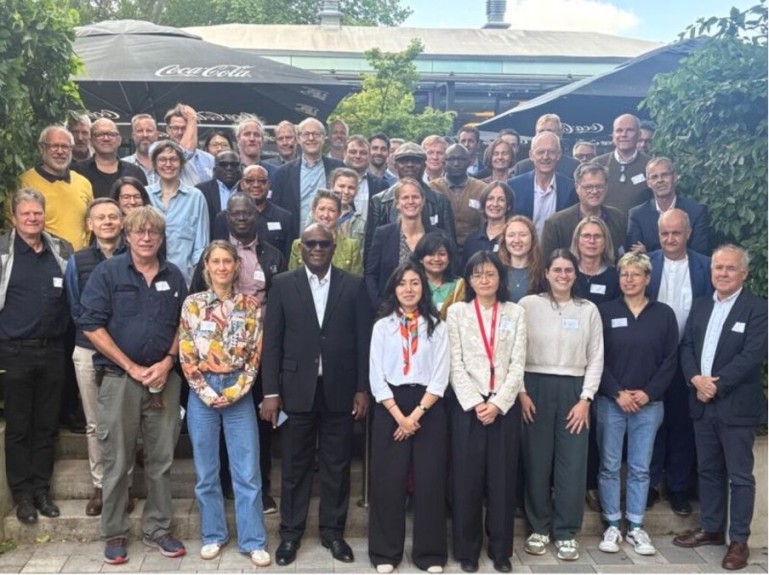

30.05.2025
On May 22, 2025, the Cologne Zoo hosted an important event for the future of tropical forests: the Tropical Forestry Forum on the Congo Basin. Co-organized by WWF Germany, FSC Germany, FSC Congo Basin and West Africa, and ATIBT.

The forum convened a wide range of stakeholders — from academia to public institutions, private sector actors, and NGOs — to address the urgent challenges and opportunities of sustainable forest management in one of the world's most crucial ecosystems.
The forum centered on the Congo Basin, the planet’s second-largest tropical rainforest and a vital carbon sink and biodiversity hotspot. Approximately 25% of the Basin’s forests are under forest concessions, underscoring the critical role of managed forestry in securing both environmental and socio-economic outcomes. Speakers highlighted that these forests are not only essential for achieving global climate and biodiversity goals under the Convention on Biological diversity(CBD) and United Nations Framework Convention on Climate Change (UNFCCC), but also for supporting the livelihoods of local communities.
Participants emphasized the urgency of promoting sustainable forest management as a pathway to preserving this vast resource, especially in the face of growing pressures linked to global trade, policy regulations like the EU Deforestation Regulation (EUDR), and market inequalities.
One of the key outcomes of the forum was the joint declaration signed by WWF Germany, FSC Germany, and ATIBT. This document outlines a shared vision and advocacy for sustainable forest management, focusing on three central messages:
The declaration reaffirms support for FSC certification as the leading standard for sustainable forest management in Central Africa. Backed by robust environmental, social, and economic criteria, FSC certification demonstrates tangible impacts in protecting biodiversity, upholding the rights of local communities and workers, and conserving forest ecosystems.
Sustainable forest management must go beyond technical standards to include the active participation of local populations in governance, strengthened timber markets, enhanced biodiversity conservation measures, and the integration of socio-environmental criteria into funding mechanisms. Innovative financing models are needed to ensure the long-term viability of these systems.
The private forestry sector remains a vital employer and source of income in many Congo Basin countries. The declaration calls on donors, financial institutions, and procurement actors to back FSC-certified companies through stronger market recognition, demand stimulation, and inclusive procurement policies.
ATIBT was represented by Managing Director Benoît Jobbé-Duval and Director of Strategy and Innovation Caroline Duhesme, both of whom made significant contributions to the forum's discussions. Diferent members were also present. Their interventions underscored the importance of embedding certification within a broader development and conservation strategy, reinforcing ATIBT’s commitment to responsible forest management as a catalyst for climate action and economic sustainability.
This landmark event marks another step in forging alliances for forests. It demonstrated that sustainable forest management is not simply an environmental issue — it is a cross-cutting strategy that connects climate resilience, biodiversity protection, social justice, and economic development. The forum's collaborative spirit and shared declaration are testament to the growing momentum behind tropical forest preservation and the essential role of certification in realizing that goal.
Together, the signatories and participants of the Tropical Forestry Forum have sent a strong message: we must act now to secure the future of the Congo Basin — for people, for nature, and for generations to come.